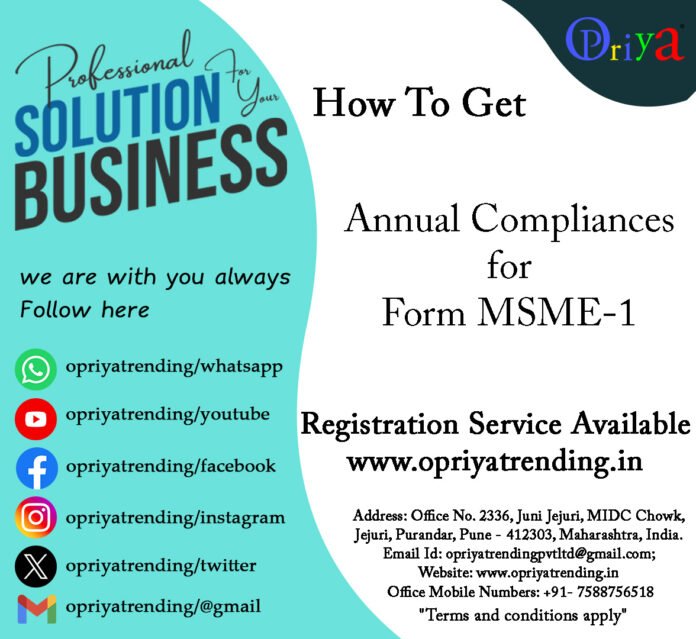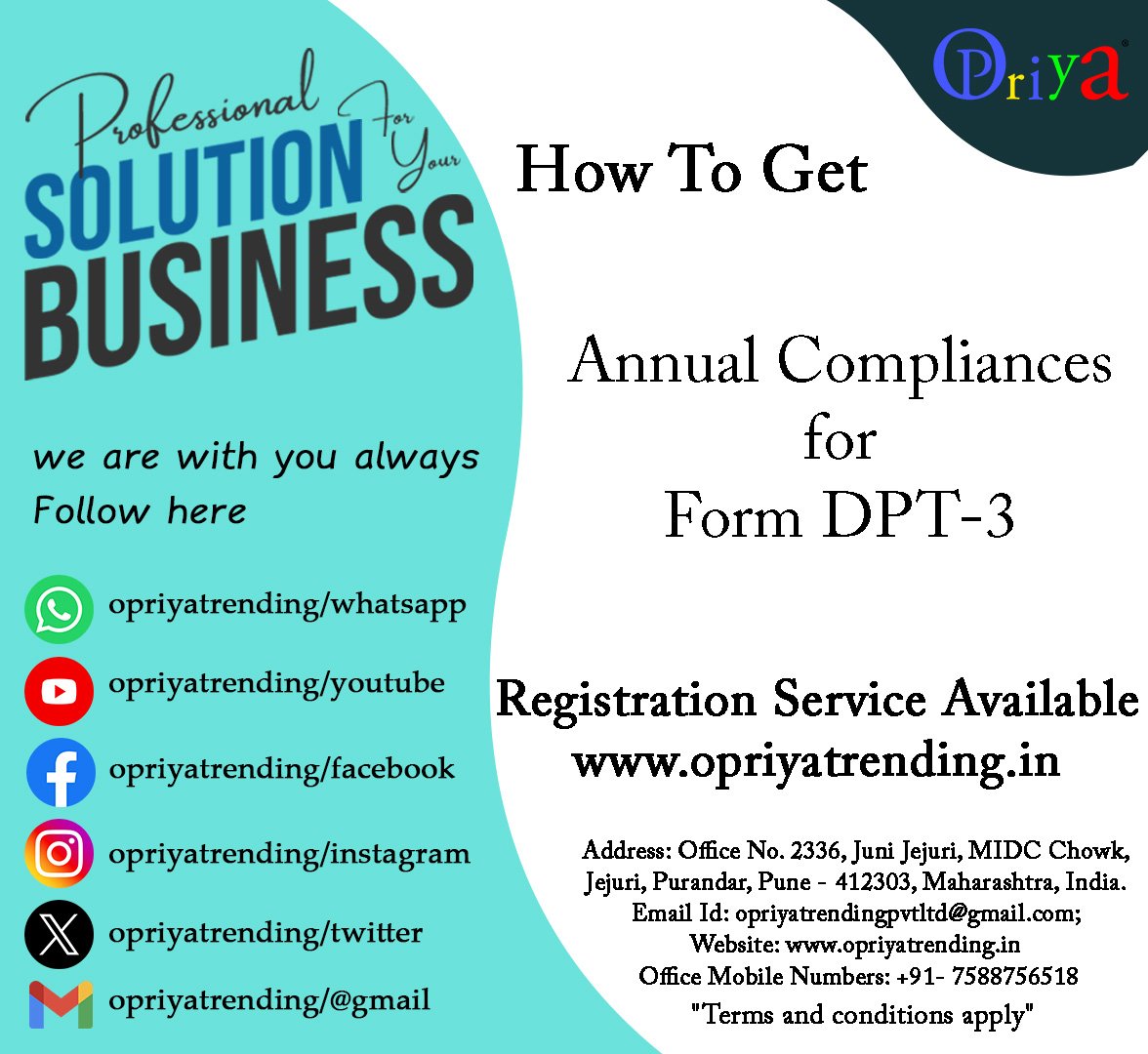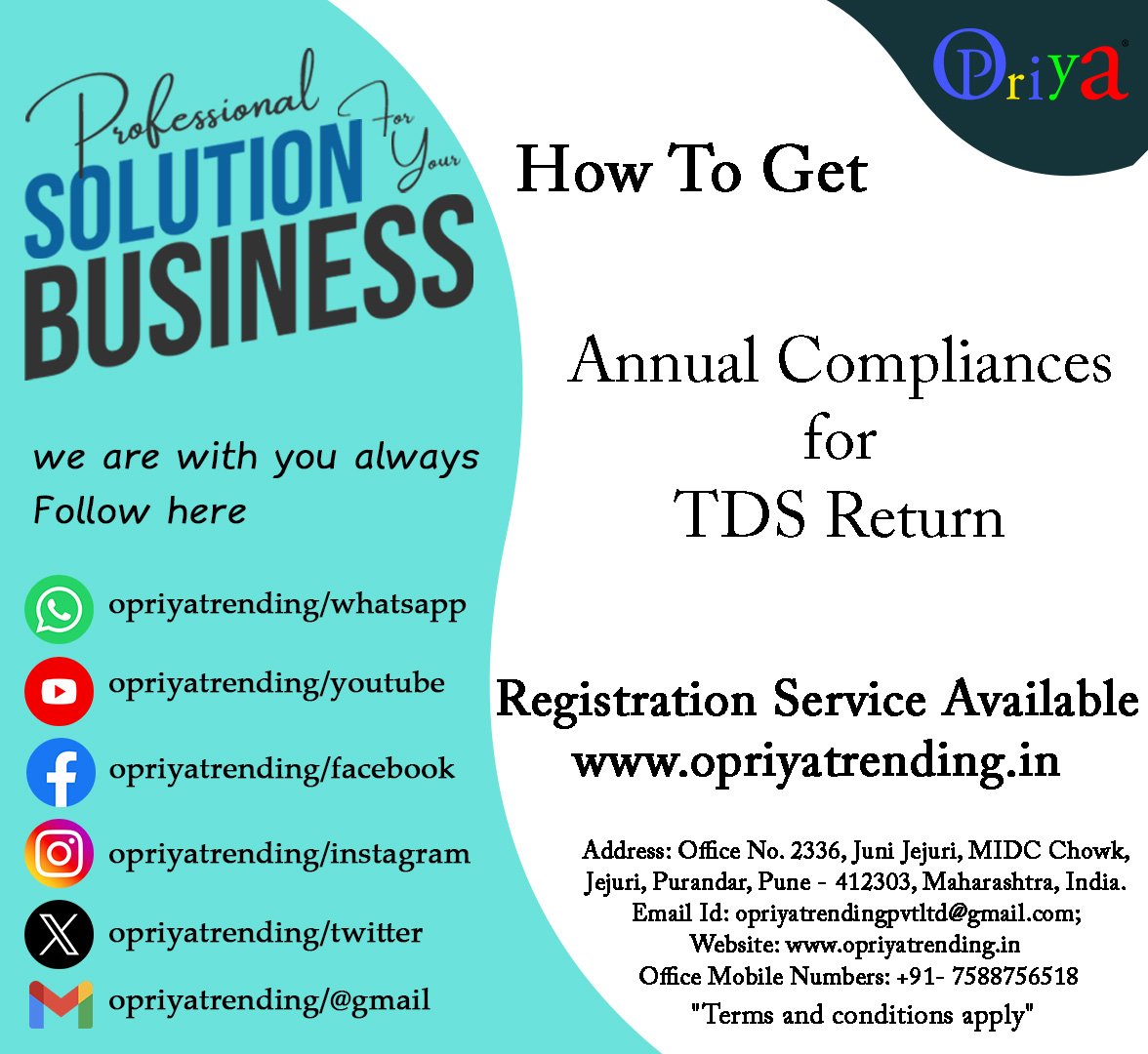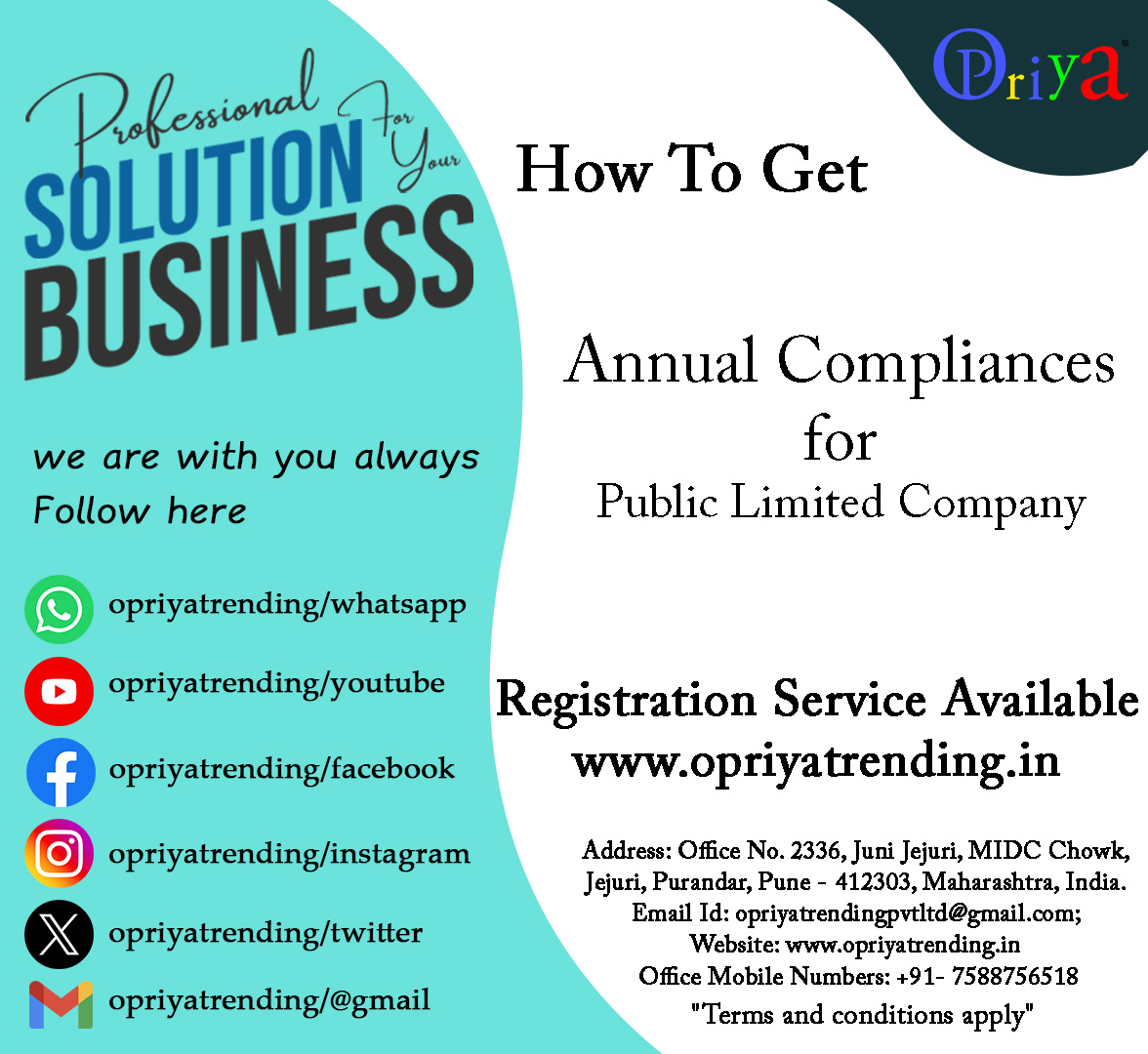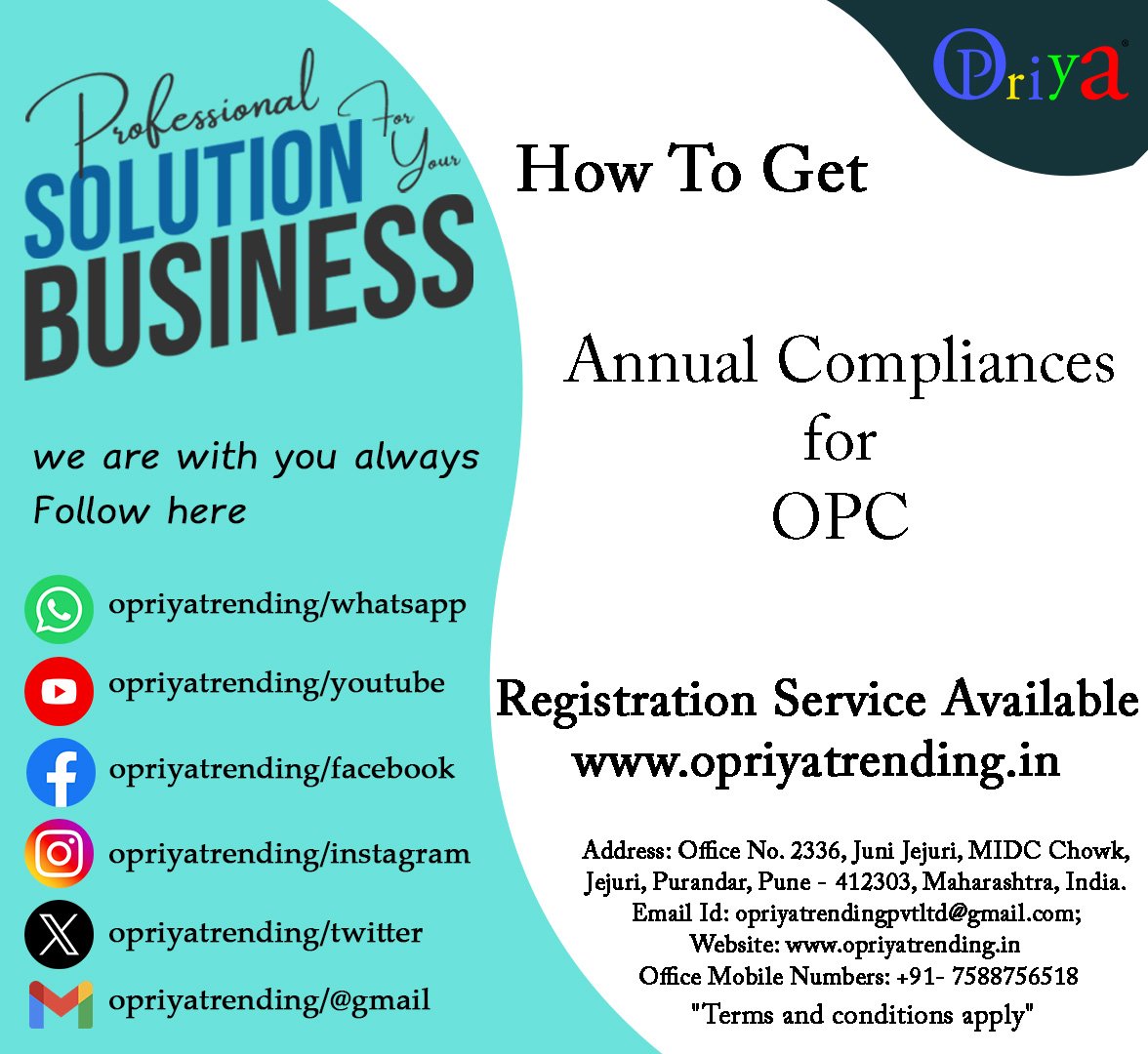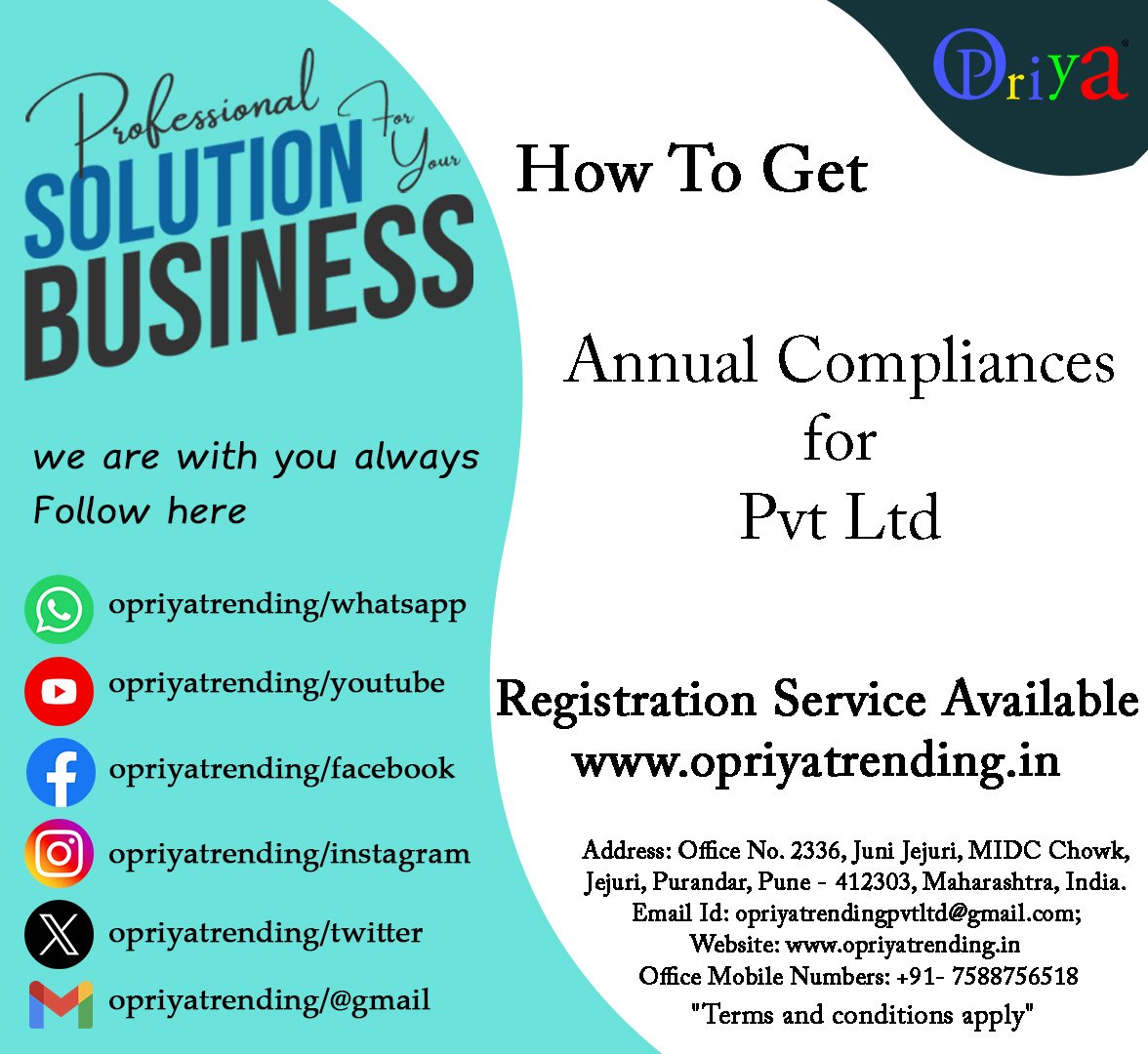Annual Compliances and What is Annual Audit of a Business
Table of Contents
1. Introduction
Annual Compliances and What is Annual Audit of a Business is a fundamental requirement under Indian corporate and tax laws. These are systematic procedures companies and entities must follow to remain legally compliant and financially transparent. Audits ensure that a business’s financial statements represent a true and fair view of its financial position. Annual compliances encompass multiple filings, disclosures, and governance actions that apply to Private Limited Companies, LLPs, and even Proprietorships depending on turnover and statutory requirements.
Understanding Annual Compliances and What is Annual Audit of a Business helps organizations avoid penalties, legal actions, and potential loss of credibility. These include filing of Income Tax Returns, ROC returns, GST filings, TDS returns, maintenance of statutory registers, board meetings, and more.
The Annual Audit, on the other hand, is performed by a qualified Chartered Accountant and involves scrutinizing financial books, verifying accounting practices, ensuring adherence to laws, and giving an opinion on the financial statements. This adds transparency and builds trust among stakeholders, investors, and regulatory bodies.
Whether your company is in the manufacturing, trading, IT services, or startup sector, staying updated with Annual Compliances and What is Annual Audit of a Business is essential. Non-compliance can lead to hefty fines, cancellation of registration, or legal issues under the Companies Act, Income Tax Act, and other allied laws.
Apply with Full Confidence 2025 through O’Priya Trading Pvt Ltd and ensure seamless, accurate, and timely compliance and audit services.
2. Types of Licenses Offered
Though Annual Compliances and What is Annual Audit of a Business doesn’t involve a traditional license, various statutory registrations function as compliance licenses for businesses:
- GST Registration – Mandatory for businesses with turnover exceeding thresholds.
- TAN (Tax Deduction and Collection Account Number) – For TDS deductions and returns.
- PAN (Permanent Account Number) – Mandatory for filing taxes.
- Professional Tax Registration – Required in some states for employers and professionals.
- Shops and Establishments License – For commercial establishments under state laws.
These registrations support the fulfilment of Annual Compliances and What is Annual Audit of a Business, as businesses are required to file returns, maintain records, and get accounts audited where applicable.
3. Who Needs These Services?
Anyone running a legally registered business entity needs to understand Annual Compliances and What is Annual Audit of a Business. This includes:
- Private Limited Companies
- Limited Liability Partnerships (LLPs)
- One Person Companies (OPCs)
- Proprietorships (with turnover thresholds)
- NGOs and Societies
For instance, a Private Limited Company must comply with ROC filings, hold annual board meetings, maintain statutory registers, and undergo a mandatory statutory audit irrespective of turnover. LLPs have relaxed norms but must still file Form 8 and 11 annually. Proprietorships require audit if turnover exceeds limits under Section 44AB of the Income Tax Act.
Understanding Annual Compliances and What is Annual Audit of a Business helps mitigate risks and ensures smooth business continuity.
4. Why Choose O’Priya Trading Pvt Ltd a License Registration Service Provider?
O’Priya Trading Pvt Ltd stands out as a professional and reliable partner for Annual Compliances and What is Annual Audit of a Business services. Here’s why:
- Certified Experts – Our team includes Chartered Accountants, Company Secretaries, and legal advisors.
- End-to-End Service – From compliance checks to final filings and audits.
- Transparent Pricing – No hidden charges; all-inclusive packages.
- Personalized Consultation – Tailored guidance as per your business structure.
- On-Time Filings – Avoid penalties with our strict compliance schedules.
We make Annual Compliances and What is Annual Audit of a Business hassle-free. Clients can trust us for detailed documentation, audit coordination, and ROC compliance. Apply with Full Confidence 2025 and focus on your core business while we handle the rest.
5. Registration Process
To start with Annual Compliances and What is Annual Audit of a Business, here’s a simplified step-by-step guide:
- Initial Consultation: Discuss business type, financials, and compliance scope.
- Document Collection: PAN, GST, ROC credentials, financial statements.
- Compliance Check: Assess previous filings, pending obligations, audit needs.
- Planning: Set up a calendar for ROC filings, Income Tax Returns, and GST returns.
- Audit Engagement: Appoint Chartered Accountant for statutory or tax audit.
- Execution: Prepare and file required forms, schedules, and statements.
- Audit Coordination: Support with vouchers, ledgers, financials, and verification.
- Final Review: Submit reports, audit opinions, and issue certificates.
- Post-Filing Support: Assistance with notices, corrections, and clarifications.
This process ensures complete compliance and error-free reporting for Annual Compliances and What is Annual Audit of a Business.
6. Required Documents
For successful execution of Annual Compliances and What is Annual Audit of a Business, the following documents are required:
- PAN Card of entity and promoters
- Incorporation Certificate
- MOA & AOA / LLP Agreement
- Financial Statements (Balance Sheet, P&L)
- GST Returns and Invoices
- TDS Returns & Challans
- ROC User ID & Password
- Previous Year Audit Report (if applicable)
- Bank Statements
These documents help prepare accurate filings and smooth audit completion. O’Priya verifies and compiles everything to ensure no data mismatch occurs in Annual Compliances and What is Annual Audit of a Business.
7. Cost Involved (Professional Fees)
Our packages for Annual Compliances and What is Annual Audit of a Business start at INR 4,999/- and vary depending on entity type and turnover. Packages include:
- Annual ROC filings
- Income Tax Return
- GST Filings (optional)
- Statutory Audit
- Advisory Calls
- Document Storage and Retrieval
We offer combo plans for startups and SMEs with annual subscriptions. Custom packages are also available for high-turnover companies. Apply with Full Confidence 2025 and get expert compliance at affordable rates.
8. Payment Refund Policy
Due to the statutory nature of Annual Compliances and What is Annual Audit of a Business, we maintain a strict no-refund policy. However, we offer a 30-day rectification support window. If there’s any delay caused from our end, we provide one free refiling or resubmission.
Your satisfaction is our priority, and we strive to resolve all issues within the service scope.
9. Terms and Policy
By availing Annual Compliances and What is Annual Audit of a Business services, you agree to:
- Share correct and complete financial and legal data
- Cooperate in documentation and audit preparation
- Not hold O’Priya liable for delays due to client-side data issues
We keep your data safe, confidential, and never share it with third parties without consent. Our services are subject to Indian law and governed by standard terms.
10. Time Taken
Our standard timelines for Annual Compliances and What is Annual Audit of a Business:
- ROC & MCA filings – 2–3 working days
- Income Tax Returns – 1–2 days
- GST Filing – Same day (subject to document readiness)
- Audit Completion – 5–7 days after document submission
Entire process from engagement to final delivery takes 7–10 working days. Apply with Full Confidence 2025 for on-time compliance.
11. Common Mistakes to Avoid
Ignoring Annual Compliances and What is Annual Audit of a Business can lead to serious consequences. Common mistakes include:
- Late filings of ROC returns
- Incorrect computation of GST or TDS
- Missing Board Meetings or AGMs
- Failing to appoint an auditor
- Not maintaining books and ledgers
These result in penalties, legal notices, or loss of credibility. To ensure smooth compliance, partner with O’Priya – your trusted expert in Annual Compliances and What is Annual Audit of a Business. Apply with Full Confidence 2025.
12. Call-to-Action
📩 Looking for help with Annual Compliances and What is Annual Audit of a Business?
Contact O’Priya Trading Pvt Ltd now:
- 📧 Email: opriyatrendingpvtltd@gmail.com
- 📱 WhatsApp: +91 7588756518 Chat Now
- 👍 Facebook: facebook.com/opriyatrending
- 🌐 Website: opriyatrending.in
13. FAQs
Q1: What is Annual Audit of a Business?
It is a yearly examination of financial records by a Chartered Accountant to ensure accuracy and legal compliance.
Q2: Who needs Annual Compliance Services?
Private companies, LLPs, and other registered entities under Indian law.
Q3: Are audits mandatory for all businesses?
Not all. Audits are mandatory for companies and for firms exceeding turnover limits.
Q4: What is ROC filing?
Filing annual returns and financials with the Registrar of Companies under MCA.
Q5: Can I skip annual filings if business is inactive?
No. Even inactive companies must file nil returns.
Q6: What if I miss a compliance deadline?
You may incur penalties and face legal actions.
Q7: How does O’Priya help in audit?
We assist in audit preparation, documentation, and coordination with CAs.
Q8: How long does an audit take?
Typically 5–7 working days depending on data readiness.
Q9: Is digital filing allowed?
Yes. All filings are done online via government portals.
Q10: Can startups avail these services?
Yes, we offer special packages tailored for startups and MSMEs.
O’Priya Trading Private Limited: All India License Registration Service Provider
In today’s complex regulatory landscape, obtaining licenses and regulatory approvals in India has become more essential than ever for businesses, institutions, and individuals. Whether it’s an arms license, FSSAI registration, company incorporation, or compliance with the latest government norms, having the right license determines your legitimacy, credibility, and operational capacity.
One company leading this transformation by providing seamless, reliable, and legally compliant license registration services across India is O’Priya Trading Private Limited. With a strong commitment to transparency, process efficiency, and client satisfaction, O’Priya Trading Pvt. Ltd. has emerged as a trusted name in the Indian licensing domain.
🔷 Company Overview
Legal Name: O’Priya Trading Private Limited
Nature of Business: License Registration, Compliance Advisory, Government Liaison Services
Operational Scale: Pan-India
Head Office: Registered in India, with service availability across all states and union territories
📞 Call-to-Action (CTA) – Apply Now with Confidence!
Ready to secure your Licence Apply with Full Confidence in All Indiaa?
👉 Contact Us Today!
📧 Email: opriyatrendingpvtltd@gmail.com
📱 WhatsApp: +91 7588756518🔗 Website: https://opriyatrending.in👍 Facebook: O’Priya Trading Pvt Ltd
Apply with Full Confidence in 2025.
🏛️ What Does O’Priya Trading Pvt Ltd Do?
O’Priya Trading Private Limited specializes in license registration services across India, offering a full range of end-to-end solutions to institutions, businesses, and individuals seeking regulatory permissions and licenses. From document preparation to submission, legal verification, and post-approval compliance, they serve as a single-window license consultancy provider.
🗺️ Pan-India Service Coverage
What makes O’Priya Trading unique is its all-India licensing facilitation network. Unlike regional agencies that operate within narrow jurisdictions, O’Priya has built an operational capacity to deliver services in every Indian state and union territory.
🌍 States Served Include:
- Delhi, Maharashtra, Uttar Pradesh, Gujarat, Rajasthan, Madhya Pradesh, Karnataka, Tamil Nadu, Kerala, Telangana, Punjab, Haryana, Assam, West Bengal, Bihar, Jharkhand, Odisha, Chhattisgarh, and more.
🏢 Cities with Active Clients:
- Mumbai, Pune, Delhi, Hyderabad, Bangalore, Kolkata, Ahmedabad, Chennai, Jaipur, Lucknow, Bhopal, Indore, Surat, Patna, and others.
Through a digital-first approach, coupled with experienced local legal liaisons, O’Priya ensures consistency in documentation, faster government approvals, and responsive client support.
💡 Why Clients Trust O’Priya Trading Pvt Ltd
1. ✅ Transparency & Ethics
🔒 100% Transparent | No Hidden Fees | Pan-India Services We believe in:
- Clear timelines
- Upfront pricing
- Honesty about payment policies (non-refundable, refundable, no surprises)
- Total confidentiality
2. 🧾 Documentation Expertise
Most license applications are delayed due to incomplete, incorrect, or improperly formatted documents. O’Priya’s legal consultants help you prepare foolproof documentation as per the latest formats demanded by regulatory bodies.
3. 🧑⚖️ Government Liaison
Whether it’s a district magistrate’s office, arms licensing authority, food safety department, or ROC office, O’Priya has built solid working relationships with relevant departments across states.
4. 🚀 Quick Turnaround
With strong process knowledge and digital tools, O’Priya delivers faster application submissions, consistent follow-ups, and streamlined approvals—ensuring minimal disruption to your business.
5. 💬 Client-Centric Support
They offer multi-channel communication: WhatsApp, email, video calls, and in some cases, in-person assistance. Clients are never left guessing about the status of their application.
📂 Service Flow: How It Works
Step 1: Free Consultation
Client reaches out via WhatsApp or email. A dedicated case manager responds with guidance and documentation checklist.
Step 2: Document Compilation
The team helps the client gather and format all required documents—identities, justifications, organizational registrations, etc.
Step 3: Application Filing
Forms are filled and submitted either physically or digitally, depending on the department’s workflow.
Step 4: Verification Support
Whether it’s a police inquiry or local office inspection, the team ensures you’re prepared and compliant.
Step 5: Approval & Delivery
Once approved, the license or certificate is collected and shared with the client via secure channels. Renewals and annual compliances are also managed, if opted for.
🔍 Industries Served
| Industry | Licenses Provided |
| Security | PSARA, Arms License |
| Food & Beverages | FSSAI, Shop Act, GST |
| Manufacturing | Factory License, Pollution NOC |
| Healthcare | Drug License, Biomedical Waste License |
| Retail & E-commerce | GST, MSME, Trademark |
| Education/Training | Arms License (Training), ISO, Accreditation support |
This industry-specific approach helps clients get exactly what they need—no more, no less.
📊 Success Metrics (As of 2025)
- ✅ 4,000+ Licenses Approved
- ✅ 95% Success Rate on First Submissions
- ✅ 100+ Cities Served
- ✅ 40+ License Categories Covered
- ✅ 500+ Institutional Arms Licenses Facilitated
🔄 Annual Compliance Services
Beyond just registration, O’Priya also offers post-licensing support, such as:
- Annual license renewals
- Change of address or ownership updates
- Firearms inspection audit preparation
- Document maintenance and digital filing
- Regulatory upgrades (as per rule changes)
This holistic approach ensures clients remain compliant even after license issuance.
📌 Why Choose O’Priya Over Others?
| Feature | O’Priya Trading Pvt Ltd | Typical Local Agent |
| Service Reach | Pan-India | Limited to district/state |
| Process Transparency | High (With Updates) | Often vague or hidden |
| Legal Expertise | Qualified Advisors | Informal guidance |
| Communication | Email, WhatsApp, Call | Mostly phone |
| Refund/Policy Clarity | Documented Terms | Unclear or non-existent |
| Renewal Reminders | Included | Rarely provided |
For businesses and institutions who cannot afford non-compliance or delays, O’Priya offers institutional-grade service quality at competitive prices.
🧭 Vision and Future Outlook
O’Priya Trading Pvt Ltd envisions becoming India’s most trusted regulatory compliance partner. With ongoing investments in:
- AI-based document automation
- Online dashboards for tracking license status
- Partnerships with regional lawyers and consultants
- Digital KYC and identity verification tools
…they aim to make India’s license ecosystem simpler, faster, and corruption-free.
Call-to-Action (CTA) – Apply Now with Confidence!
Ready to secure your Licence Apply with Full Confidence in All Indiaa?
👉 Contact Us Today!
📧 Email: opriyatrendingpvtltd@gmail.com
📱 WhatsApp: +91 7588756518🔗 Website: https://opriyatrending.in👍 Facebook: O’Priya Trending Pvt Ltd
Apply with Full Confidence in 2025.
🛡️ Legal. Reliable. Fast. That’s the O’Priya Promise.
📋 List of Services (with Reconstructed Links)
Below is the categorized list of services as per the website’s usage index. Where possible, we’ve added direct or pattern-based links.
1. Arms License Services
- Arms for Individual License Registration
- Arms for Institution License Registration
- Arms for Sports License Registration
- Arms for Dealers License Registration
- Weapons Manufacturing License Registration
2. AYUSH License
- AYUSH Loan & Others License
- AYUSH Manufacturing License
- AYUSH Distribution License
- AYUSH Clinic License
- AYUSH Retail License
3. BIS/ISI/ISO Certifications
4. Compulsory Registrations
- MSME/Udyam Registration
- Startup India Registration
- FSSAI Registration (Central/State)
- Legal Entity Identifier Code
- Trade License
- Fire License
- Digital Signature
- ICEGATE Registration
- FCRA Registration
- 80G and 12A Registration
5. DOT/Telecom Licenses
- ISP License
- NLD/ILD License
- UL VNO License
- PM-WANI Registration
- SACFA Clearance
- IP-1 Registration
- TEC Certificate
- AGR Return Filing
6. Drug License
7. Electrical License
8. GST & Taxation
9. IPR Services (Trademark, Copyright, Patent)
- Trademark Registration
- Trademark Objection Reply
- Patent Filing (Provisional/Complete)
- Copyright Registration
- Design Registration
10. Liquor License
11. MCA Services
- Private Limited Company Registration
- LLP Registration
- OPC Registration
- Annual MCA Compliance
- Company Closure
12. PESO License
13. PSARA License
14. Pollution Control
15. Regulatory Bodies
- NBFC Registration (RBI)
- FFMC & P2P Lending
- Legal Metrology Packager License
- IRDAI Corporate Agent License
📞 Contact O’Priya Trading Pvt Ltd Today
👉 Contact Us Today!
📧 Email: opriyatrendingpvtltd@gmail.com
📱 WhatsApp: +91 7588756518🔗 Website: https://opriyatrending.in👍 Facebook: O’Priya Trending Pvt Ltd
🛡️ Legal. Reliable. Fast. That’s the O’Priya Promise.
💖 Why opriyatrending.in is More Than Just a Service Platform
In a country as vast and complex as India, navigating government registrations can feel overwhelming, stressful, and even hopeless at times. But opriyatrending.in doesn’t just offer “services.” It offers reassurance, clarity, and a sense of control—when you need it most.
🛑 The Fear of Rejection, Delays, and Loss
You might have tried applying for licenses yourself before—endless documents, non-responsive departments, confusing portals. It can leave you feeling:
- ❌ Lost in bureaucracy
- ❌ Afraid your business will never take off
- ❌ Unsure who to trust
O’Priya Trading Pvt. Ltd. understands this fear—and fights it by giving you the guidance you were never offered before.
💪 A Partner in Your Growth Journey
Whether you’re a dreamer starting your first startup, a farmer protecting your land, a doctor opening a clinic, or a dealer building your future—this company walks beside you.
- They help you register your identity
- They protect your investment
- They stand between you and the wall of red tape
When opriyatrending.in helps you get your license, they’re not just checking boxes. They’re helping you move forward with confidence.
🧠 A Calm Voice When Everything Feels Chaotic
In a system full of delays, errors, and vague processes, opriyatrending.in offers:
- 🧾 Clear documentation guidance
- 🕐 Honest timelines
- 📞 A human voice when you call or WhatsApp
When you’re in a crisis—whether it’s a license rejection or urgent compliance—they don’t ignore you. They respond. They care.
🌱 Your Dreams Deserve to Be Legal, Protected, and Empowered
Every license, every registration, every clearance—represents a life goal.
It’s your right to:
- Own a weapon for protection
- Start a small company
- Launch a new StartUp company
- Open a food business legally
- Register a company and pass it on to your children
Opriyatrending.in ensures that no dream is delayed because of red tape.
🔗 It’s Not Just a Website It’s a Lifeline.
📍 When you open opriyatrending.in, you’re not just clicking on a page.
You’re saying:
“I’m ready to take a step toward my dream, but I need help.”
And that’s exactly what O’Priya Trading Pvt. Ltd. is here for.
📞 Contact O’Priya Trading Pvt Ltd Today
👉 Contact Us Today!
📧 Email: opriyatrendingpvtltd@gmail.com
📱 WhatsApp: +91 7588756518🔗 Website: https://opriyatrending.in👍 Facebook: O’Priya Trending Pvt Ltd
🛡️ Legal. Reliable. Fast. That’s the O’Priya Promise.
